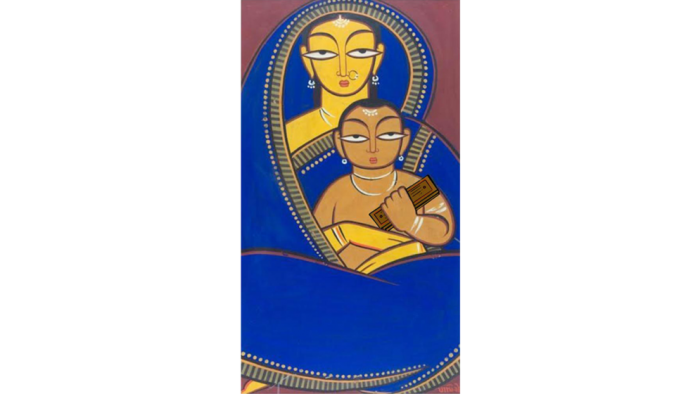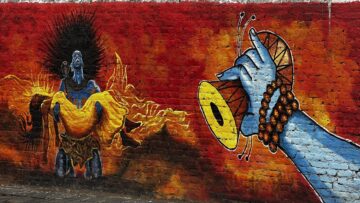We are pleased to announce the establishment of the “Justice Pamidighantam Kodandaramayya Foundation – Indic Academy” – Centre for Indic Studies in Law and Justice (“CISLJ”).
Vedic thought, apart from guiding individuals towards spiritual enlightenment, developed knowledge systems that provide the foundation for social and political order. These knowledge systems encompass procedural and substantial justice and seamlessly integrate the individual, family, society, and the State.
In addition to Justice, Indian logic is a distinct discipline that provides methods of inquiry into ‘proof of fact’. These Vedic Schools of thought coupled with Bauddha and Jaina variants have evolved a logic system called ‘navyanyaya’ that offers syllogistic methods of inquiry. These shaastras also explain the method of conducting an argument based on reason.
Colonialism superimposed the western systems of law and governance and that resulted in the Indian knowledge systems being confined to traditional centers of learning and they have been protecting them for generations. These knowledge systems survived the advent of new regimes, religions, cultures, and languages in the Indian subcontinent.
The JPKR Foundation is of the view that these knowledge systems have the potential of establishing a society where individuals and institutions are grounded in ‘virtue jurisprudence’ as a constitutional value.
The mainstreams of contemporary education – be it law, political science, sociology, or public administration – remains indifferent and oblivious of these knowledge resources. The mission of the JPKR Foundation is to bring these knowledge systems into the mainstream of modern learning and utilize the knowledge resources for the resolution of disputes.
The accessibility of the classical knowledge resources to legal practice and academia has proved difficult primarily due to the lack of awareness of the existence of these knowledge resources. A large number of ’shaastras’ composed in Sanskrit remain inaccessible to a majority of the population familiar with English and other languages.
The language barrier is a major concern. Further, much of the traditional knowledge is embedded in regional languages like Telugu, Odiya, Tamil, Kannada, Marathi, Assamese, and Bengali to name a few. There are no equivalent words in English for many concepts in our knowledge systems. Hence there is a need to develop the necessary vocabulary to translate these concepts into an easy to comprehend language. Intense research and development must be undertaken by institutionalizing the same. There is also a need to coordinate the efforts of individuals and institutions who have made similar efforts and to bring them all under a common platform for mutual benefit.
The JPKR Foundation is conscious of the aforementioned challenges in undertaking this initiative. There is a need to identify such resources and make the knowledge universally accessibile. A need is felt for establishing a Centre for Indic Studies in Law and Justice for integrating these knowledge systems into a structured pedagogy for professional courses.
Indic Academy is a pioneering educational institution for Indic Knowledge Systems. IA seeks to bring about a global renaissance of Indic civilizational thought. IA pursues a multi-dimensional strategy and simultaneously seeks to preserve, protect, and promote our intellectual, cultural, and spiritual heritage by planning its activities across near, medium, and long-term horizons. Its thought centers and platforms enable upcoming intellectuals to discover and express their potential through its research fellowships, publications, courses, and events.
IA is also building an ecosystem through its connect, collaborate and create strategy; it is nurturing city-based and domain-specific networks, actively seeking collaborations for infrastructure, knowledge, finance, or customers, and lastly but more importantly has developed a comprehensive grant program targeted at students, intellectuals, scholars and institutions for learning, creating and showcasing Indic knowledge systems through events, books, films, and digital platforms.
JPKR Foundation and Indic Academy have now come together to establish the “Justice Pamidighantam Kodandaramayya Foundation – Indic Academy” – Centre for Indic Studies in Law and Justice. The purpose of CISLJ is to :
- be a leading hub for research in legal jurisprudence on its own and through partnerships with other Universities & Institutions
- be the developer of modern techniques for real-time practitioners of all professions
- be a center for teacher training by designing and delivering courses to train academics
- offer programs directly to students by establishing and managing Centers for Indic Studies in Law and Justice at various Universities as well as online courses
- organize workshops, seminars, and conferences
- build a global ecosystem of institutions and intellectuals committed to Shastras, Law, and Justice
Commenting on the Center,
Mr. P.S. Narasimha, Senior Counsel Supreme Court of India and Trustee, JPKR Foundation said, “While serving as a bridge or a channel between the knowledge resources, the center will aim at creating a new world order based on true Fraternity. Thank Sri. Hari Kiran Ji for fostering this partnership and congratulate everyone associated with this endeavor”.
Mr. Hari Kiran Founder said, “We are pleased to partner with JPKR Foundation in establishing our fourth Thought Center. The need for such a Center is not merely to enhance the appreciation of the Indic culture and traditions amongst the legal fraternity for better outcomes in matters relating to our culture, but also to use the Indic thought to advance theory and practice of Law and Justice in our country.
We are honored to name the Center in memory of Justice P.Kodadandaramayya, a legal luminary who embodies the Indic spirit in thought, word, and deed. We are grateful to P.Narasimha Garu for giving us this opportunity and look forward to building this Center.”
Write to us at namaste@indica.org.in if you wish to work at the Center or be associated with its purpose.
Note on the image: We are deeply inspired by the mother and child sculpture by Sri Chintamoni Kar at the Supreme Court. It portrays Mother India in the form of the figure of a lady. The lady is sheltering the young Republic of India represented by the symbol of a child, who is upholding the laws of land symbolically shown in the form of an open book. In the book, a balance is shown, which represents the dispensation of equal justice to all. We have adopted this concept to a Jamini Roy painting of a mother and child and replaced the toy in the original painting with the image of our Shaastras, artistically symbolizing the efforts at our Center.
We are a not for profit and no copyright infringement is intended.
Disclaimer: The opinions expressed in this article belong to the author. Indic Today is neither responsible nor liable for the accuracy, completeness, suitability, or validity of any information in the article.





